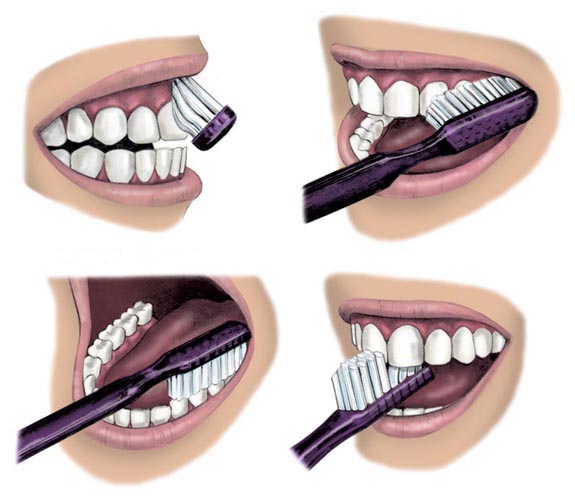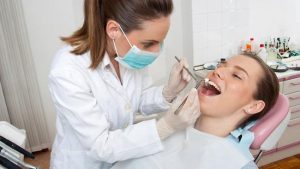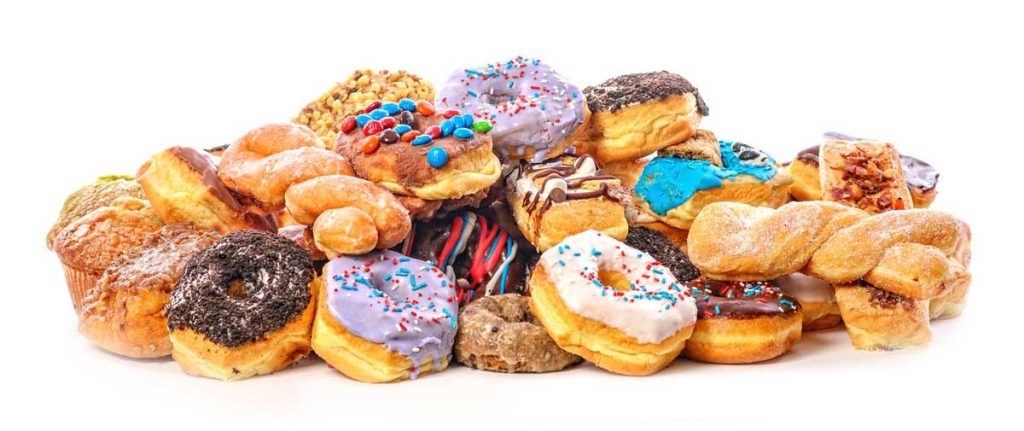Health problems can affect everyone, especially oral problems like plaque. Problem is, only few understand what it is. When the bacteria in the mouth forms a sticky coating on the teeth, it is called plaque. Plaque eats out teeth, causing it to decay and gum disease. Here are ways you can stop plaque build-up and before it eats up all your teeth.
Brushing the right way is the key
It is recommended that we brush our teeth properly at least twice a day — when we get up in the morning and before we go to bed at night. Don’t forget to do it before you sleep as you don’t want the plaque to stick to your teeth all night. Use a toothbrush that has soft bristles, and have a new one every three months.
Now you got the guidelines of the routine down pat, here’s how you should brush your teeth:
 Hold the toothbrush at a 45 degree angle from the gum.
Hold the toothbrush at a 45 degree angle from the gum.
- Make gentle, circular strokes that cover the whole tooth from all sides – top, bottom and both inner and outer sides.
- Brush for full two minutes will help you clean the complete space of the mouth in a perfect manner.
- Ensure the bacteria on the top of the tongue is scraped away (with the scraper found on the back side of the toothbrush).

Try an electronic toothbrush that is more efficient than the manual ones.
Clean the space in between teeth
 We can see the surface of the teeth, so we can brush it thoroughly. But brushing alone may not be enough to remove food stuck in between teeth. For this, you need to use a dental floss.
We can see the surface of the teeth, so we can brush it thoroughly. But brushing alone may not be enough to remove food stuck in between teeth. For this, you need to use a dental floss.
This will reach the niche areas in between the teeth. Besides this, you can try these other dental care products:
- Plaque Removers made of wooden material
- Flossers which are available in a pre-threaded manner
- Straight angled brushes that can reach in between the teeth
- Water flossers
- Dental toothpicks
Remember, there is no perfect timing to floss or brush your teeth. Brush and floss as many times a day as possible.
Use good quality mouthwash
 A good quality anti-bacterial mouthwash prevents plaque buildup consistently. It protects the teeth by loosening the plaque around them, making it easy to remove through brushing and flossing.
A good quality anti-bacterial mouthwash prevents plaque buildup consistently. It protects the teeth by loosening the plaque around them, making it easy to remove through brushing and flossing.
But before you gargle, remember to take care in using a mouthwash. This is especially true if you have a dry mouth. This is because alcohol is one of the main ingredients of a mouthwash. Alcohol does not help in preventing plaque from spreading in the mouth. If the mouth becomes parched due to the wrong usage, it will be hard to remove the sticky plaque from the teeth.
Avoid food items rich in starch and sugar
Every time you finish eating, plaques attack the teeth to taste the leftover sugar and starch on the surface. Thus, the more sugar and starch there is on your food, the more intense the the extent of attack from plaques.
 Foods that are high in sugar and acidic in nature decays the teeth faster. But these are not the only ones you should avoid. The following also attracts plaque, hence, you need to avoid as much as possible:
Foods that are high in sugar and acidic in nature decays the teeth faster. But these are not the only ones you should avoid. The following also attracts plaque, hence, you need to avoid as much as possible:
- Alcohol;
- Candies and chocolates, sugar content sticks on teeth;
- Bread varieties and potatoes which are high in starch;
- Carbonated drinks
If you ate or drunk any of these, make sure you clean your teeth immediately so you can retain the moisture in them. Eating snacks between meals is highly harmful to the teeth. Make sure you brush after eating snacks and after every meal, so plaque is removed more frequently. If you don’t have a toothbrush nearby, chew a sugarless gum instead to keep your teeth clean.
Frequent visit to Dentist helps
Visit dentist in Abbotsford at least two times every year. This is akin to a general cleaning of your house, where you can remove the dirt in every nook and cranny. Beyond what we usually do to clean teeth, an expert dentist can clean areas which we could not reach while brushing. Having a right smile permanently on your face mostly depends on the extent of oral care efforts taken by you.
RELATED
The Importance and Tips Of Dental Care
The Causes of Tooth Decay and How to Reverse It
How to Prevent Dental Cavities and Keep the Teeth Healthy
 201 Nicholson Street Abbotsford VIC 3067
201 Nicholson Street Abbotsford VIC 3067
